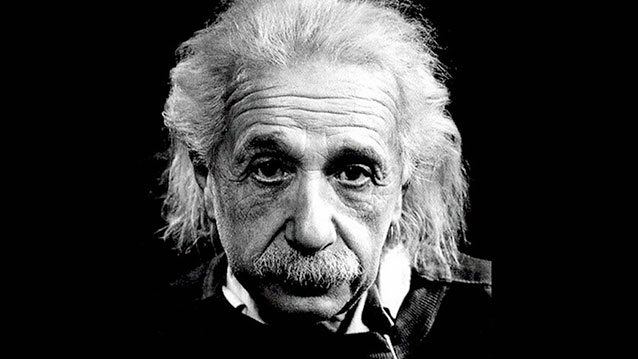EVANSTON, Ill. --- One hundred years ago, a young scientist revolutionized physics with his explanation of how gravity really works.
On the last Friday of every month in 2015, astronomers from Northwestern University’s Center for Interdisciplinary Exploration and Research in Astrophysics (CIERA) will celebrate that icon of science -- Albert Einstein -- and his 100-year-old theory of general relativity.
The talk series "Einstein Evenings," which was spearheaded by CIERA’s director, Professor Vicky Kalogera, will take place on the final Fridays, during the observatory’s regular public observing hours, 8 p.m. to 10 p.m. in the fall and winter and 9 p.m. to 11 p.m. in the spring and summer (the first hour by reservation only). To find schedule details or learn about regular public viewing hours, visit the observatory's website.
CIERA astronomers will host a series of 10-minute presentations at Dearborn about Einstein's ideas and their place in cutting-edge research.
In November 1915, Einstein introduced the world to his theory of general relativity, finally explaining how gravity really works, specifically how massive objects can cause a distortion in space and time. He became a “rock star” in his time, and, as evidenced by the number of college dorm rooms adorned with his likeness, Einstein continues to inspire inquiry today.
Revolutionary in the truest sense of the word, Einstein’s discovery of general relativity set the world of science on a new course. What were once little more than musings by a boundlessly curious patent clerk continue to inspire some of the most groundbreaking experiments of our time, according to Northwestern astronomers.
Today, smartphones use his equations of gravity to help us find our way home with GPS.
On campus, Northwestern astronomers are using Einstein's theories to find a new way to view the universe.
“Einstein was revolutionary in the way we think about gravity, and now he will be revolutionary in the way we see the universe,” said John Everett, assistant director of operations at CIERA.
Attendees will learn about how Einstein radically changed our picture of gravity and how stars and black holes can transmit gravity signals, called "gravitational waves," to us through space, Everett said.
They will also hear about ongoing Northwestern research to detect those signals, using a new type of laser-based telescope.
“When we detect these gravity signals, they will, for the first time, allow us to directly detect black holes; light cannot escape from black holes, but gravitational waves can,” Everett said.
The “Einstein Evening” presentations, given by Northwestern students and postdoctoral researchers, will occur on a rolling basis during Dearborn Observatory's two-hour public observing sessions on the last Friday of each month.
Dearborn Observatory is open for public observing every Friday night from 8 p.m. to 10 p.m. during the fall and winter. The observatory’s public viewing hours in the spring and summer are from 9 p.m. to 11 p.m.


